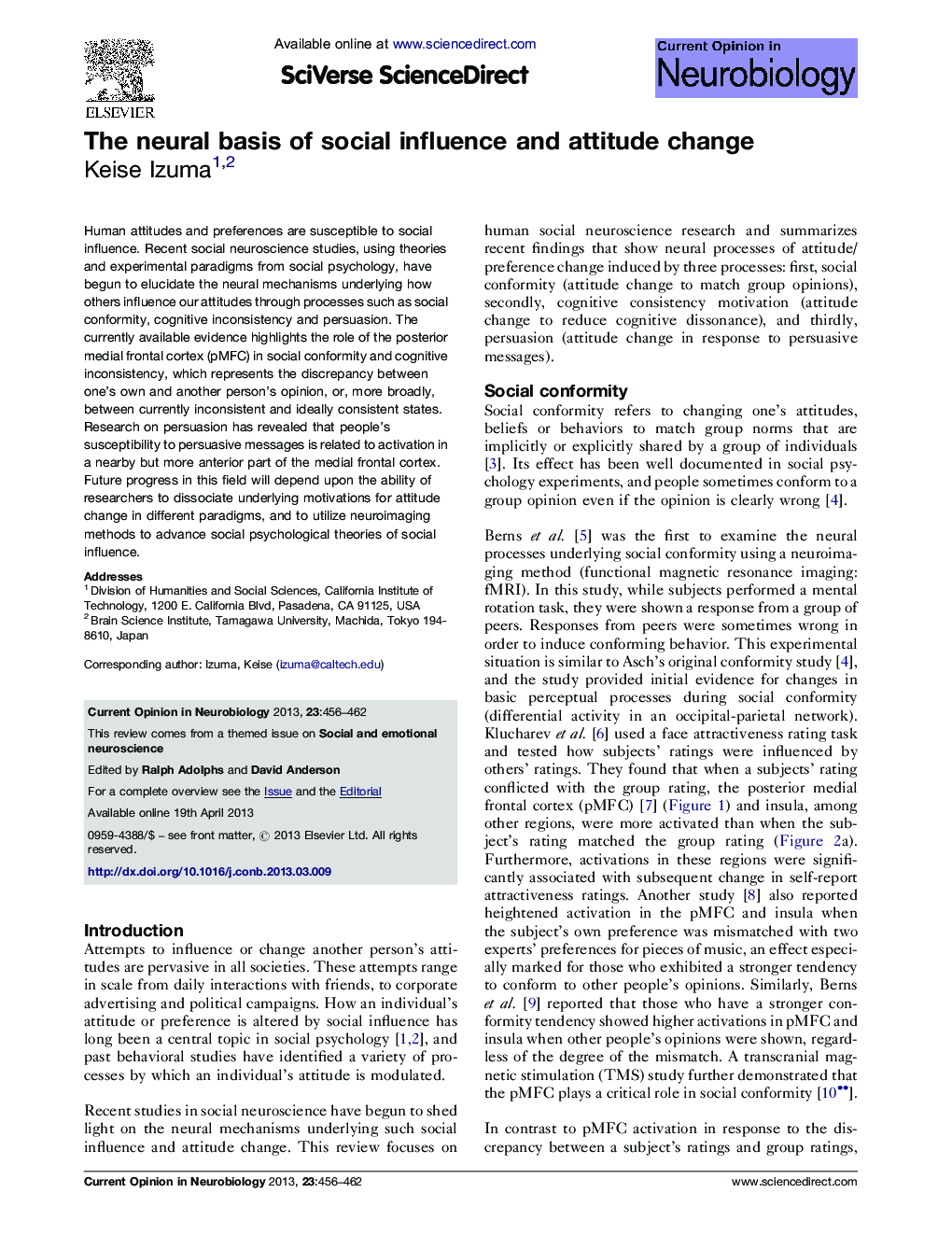| کد مقاله | کد نشریه | سال انتشار | مقاله انگلیسی | نسخه تمام متن |
|---|---|---|---|---|
| 6267196 | 1294931 | 2013 | 7 صفحه PDF | دانلود رایگان |
- Human preferences are modulated by social influence.
- Such modulations arise from social conformity, cognitive inconsistency, and persuasion.
- Posterior medial frontal cortex (MFC) plays a key role in social conformity and cognitive consistency.
- The effectiveness of persuasive messages is related to activations in anterior MFC.
- Social influence may recruit the same neural processes as reinforcement learning.
Human attitudes and preferences are susceptible to social influence. Recent social neuroscience studies, using theories and experimental paradigms from social psychology, have begun to elucidate the neural mechanisms underlying how others influence our attitudes through processes such as social conformity, cognitive inconsistency and persuasion. The currently available evidence highlights the role of the posterior medial frontal cortex (pMFC) in social conformity and cognitive inconsistency, which represents the discrepancy between one's own and another person's opinion, or, more broadly, between currently inconsistent and ideally consistent states. Research on persuasion has revealed that people's susceptibility to persuasive messages is related to activation in a nearby but more anterior part of the medial frontal cortex. Future progress in this field will depend upon the ability of researchers to dissociate underlying motivations for attitude change in different paradigms, and to utilize neuroimaging methods to advance social psychological theories of social influence.
Journal: Current Opinion in Neurobiology - Volume 23, Issue 3, June 2013, Pages 456-462
